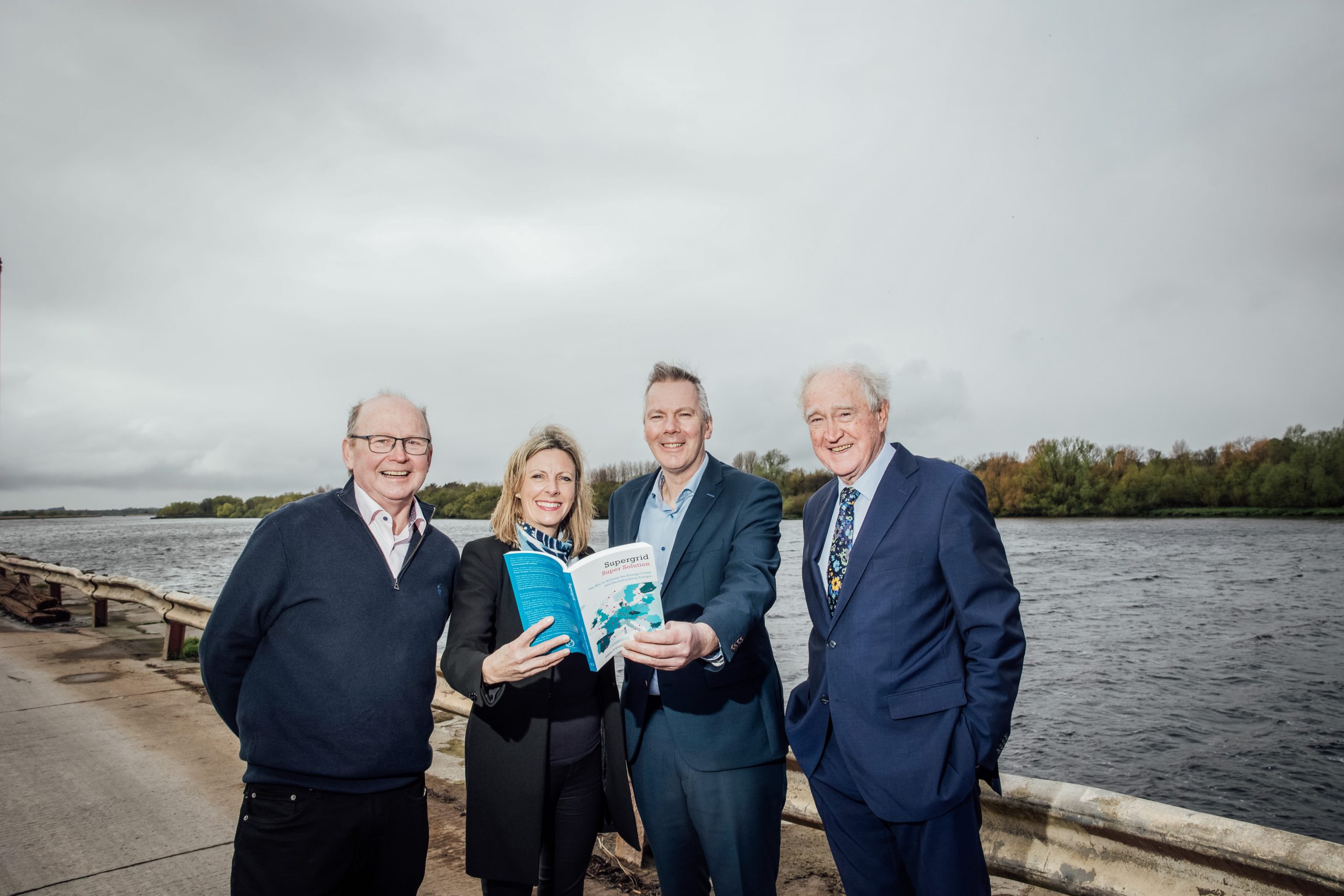
Power for delivering on Ireland’s “greatest opportunity”, floating offshore wind, must move to Dept. of Taoiseach
Delivery not at pace required for such an opportunity
Ireland targets 5GW by 2030 but has 100 times capacity of Germany, which targets 40GW by 2035
Tuesday, April 11, 2023: Responsibility for harnessing “the greatest opportunity in the history of the State” – floating wind energy generation on the Atlantic seaboard – should be handed to the Department of the Taoiseach, a gathering of renewable industry experts has heard.
The consensus from industry experts at University of Limerick for the regional launch of renewable energy pioneer Eddie O’Connor’s book Supergrid Super Solution – co-authored with journalist Kevin O’Sullivan – was that while the opportunity for environmental, economic and social transformation from Europe’s best wind resource is unprecedented for the State, the pace of delivery is alarmingly slow.
The Airtricity and Mainstream founder and champion of the European Supergrid concept through his SuperNode Ltd company was supported in his call at the event for shifting responsibility to the Department of the Taoiseach for realising Ireland’s opportunity to become one of the world’s leading renewable energy players.
“We have an opportunity now that is the greatest in the history of the State. Ireland has the capacity to supply 10% of Europe’s power by 2050 and much more beyond that. Right now, we’re not too dissimilar to the Middle East in the 1940s when it began its oil and gas journey. That has made nations like Saudi Arabia global financial powerhouses and that’s what Ireland can become. The big difference is our energy is green and it’s the solution the world is waiting for.
“By way of example, we have 100 times more offshore territory than Germany and far greater winds and yet they have an ambition for 40GW of offshore wind power capacity by 2035, with 1GW alone enough to power 1million homes. Our ambition in Ireland, by comparison, is to deliver 5GW by 2030. So, what does that say?”
To accelerate pace of delivery here, Mr O’Connor said that responsibility needs to move to where the power is, the Taoiseach’s office. “What we must do straightaway is get over the bureaucratic inertia. We need real power to be brought to this equation. And to me, the Department of the Taoiseach and the chief civil servant there is where the power rests and where this must be delivered from. The Department has the power to tell secretaries in other departments what to do. Power used benignly, in the interests of the long-term goals of Ireland, is the great function of the department of the Taoiseach.”
He continued: “We’ve proposed this move and I think we’re getting there. If you compare Ireland now with what it was like five years ago, we’ve moved a gigantic distance, but we need to move another gigantic distance.”
Regarding his proposal for a European Supergrid, Mr O’Connor said: “You can’t decarbonise without a super grid. Where are the resources? The resources are here in Ireland. They’re not in Germany. They’re certainly not in Poland, not in Eastern countries of Europe. They don’t have the resources, we and the Mediterranean, with its solar opportunities, have. So, let’s link it together and we have a perfect, limitless bank of energy with incredible synergies. When the sun isn’t shining, the wind is generating and vice versa.”
Mr O’Connor’s comments were roundly supported at the event. Said Dr. Val Cummins, Ireland Director at Simply Blue Group: “The fundamental question is how can we progress faster? This is a massive opportunity in terms of floating offshore, in terms of port development, in terms of grid, the transmission system and alternative routes to market. There’s so much work being done on all those elements. But fundamentally, this work needs to be matched by a system of delivery.
“There’s an industry view that we’re not managing to deliver. And I think Eddie O’Connor’s recommendations in relation to transforming the architecture of the system, such that it’s fit for purpose to deliver, is a key point. We showed we could do it for COVID. That was a crisis at that time. Climate continues to be a crisis. And I think the take home is it’s time for action to prime floating offshore wind.”
Said John Fitzgerald, CEO of SuperNode: “The ambition to do 30, 40 or even 70 gigawatts off the West Coast is not matched by government mandates on the agencies they direct. So, until they’re joined up, we’re really going to struggle to realise the potential.”
Said Pat Keating, CEO of Shannon Foynes Port Company, which has maritime responsibility for the Shannon Estuary, which will be a key staging post for development of the floating offshore wind fields: “We have a huge resource on our doorstep here, climate action is happening so we have an obligation even more so than an opportunity. Other countries that don’t potentially have the same offshore opportunity as us will locate the supply chain in their countries and we lose out then on the big value-add opportunity and literally tens of thousands of jobs. This is just too big for us as a nation not to grab but time is not on our side actually and we need to get moving.”
